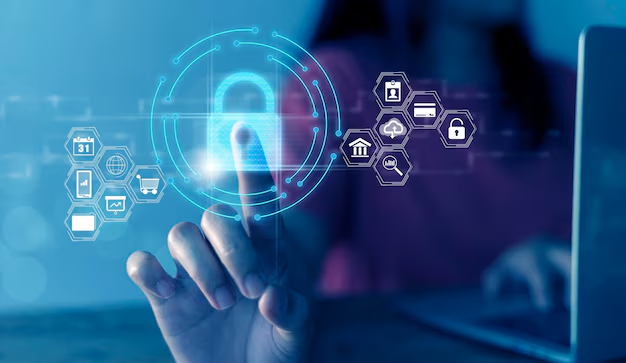Europe’s top companies are grappling with cybersecurity challenges that could have significant implications for their operations and reputations.
According to a recent assessment by SecurityScorecard, a leading cybersecurity ratings platform, the vulnerabilities in Europe’s largest corporations highlight an urgent need for improved security measures.
The report analyzed the top 100 companies by market capitalization across multiple industries, revealing alarming statistics that demand attention.
Key Findings
1. High Prevalence of Third-Party Breaches
One of the most concerning revelations is that 98% of Europe’s top companies experienced security breaches through third-party vendors in the past year.
This underscores the vulnerabilities in supply chain security, which often serve as entry points for cyberattacks. The interconnected nature of modern business operations means that a single weak link in the supply chain can compromise an entire organization.
2. Limited Top-Tier Cybersecurity Ratings
The assessment showed that only 26% of the companies achieved an ‘A’ rating, signifying robust cybersecurity practices.
This leaves the majority in the lower tiers, with vulnerabilities that expose them to potential attacks. A low score not only increases susceptibility to cyber threats but also erodes trust among customers, partners, and stakeholders.
3. Direct Breaches
The report noted that 8% of these companies suffered direct cybersecurity breaches within the last year. While this figure might seem small, the impact of these breaches—ranging from financial losses to reputational damage—is far-reaching. High-profile breaches often result in regulatory fines and loss of consumer confidence.
4. Sector-Specific Challenges
The study highlighted significant variations in cybersecurity performance across different sectors:
- Energy Sector: 75% of companies in this sector were rated ‘C’ or below. This is particularly concerning given the critical role of energy infrastructure in national and regional stability.
- Transport Sector: Companies in this sector performed comparatively better, with all firms scoring ‘B’ or higher. This demonstrates that with targeted investments and strategies, industries can improve their security posture.
Implications for European Companies
The findings present a stark warning for Europe’s leading companies. Poor cybersecurity ratings can lead to several challenges:
- Regulatory Scrutiny: European companies face stringent data protection regulations, including the General Data Protection Regulation (GDPR). Breaches not only result in fines but also necessitate costly remediation measures.
- Erosion of Trust: Customers and investors increasingly prioritize companies with strong cybersecurity measures. A breach or low security rating can significantly impact a company’s reputation and market position.
- Operational Disruptions: Cyberattacks, such as ransomware or data theft, can cripple operations and lead to prolonged downtime, resulting in revenue losses.
Recommendations for Improvement
To address these challenges, companies must adopt a proactive approach to cybersecurity:
- Enhance Third-Party Risk Management: Organizations should implement robust vetting processes for vendors and continuously monitor their cybersecurity practices.
- Invest in Security Technologies: Advanced tools, such as AI-driven threat detection and endpoint protection systems, can help mitigate risks.
- Promote a Culture of Cybersecurity: Employee training and awareness programs are essential to combat phishing and other human-centered attacks.
- Regular Assessments and Upgrades: Frequent security audits and system upgrades ensure vulnerabilities are identified and addressed promptly.
Conclusion
The SecurityScorecard assessment serves as a wake-up call for Europe’s leading companies.
Cybersecurity is no longer a back-office concern; it is a boardroom priority. As threats become more sophisticated, organizations must adopt a comprehensive approach to safeguard their operations, data, and reputation.
The time to act is now, and the stakes have never been higher.
Also Read
Zero-Click Exploit Uncovered on Samsung Devices: What You Need to Know
PayPal Users Warned About Sophisticated Cyber Attack Targeting Accounts
